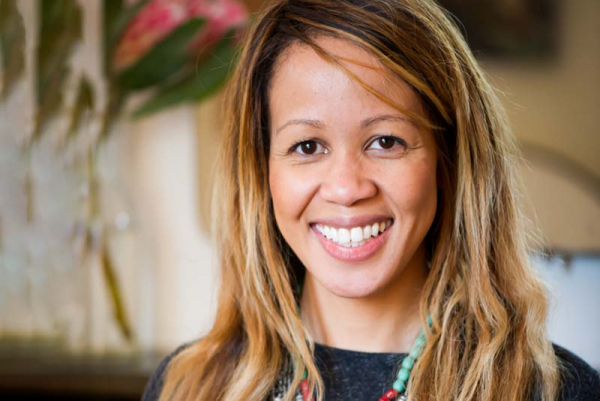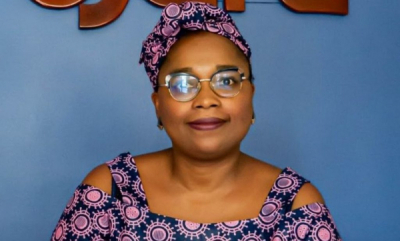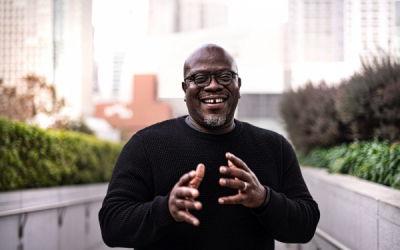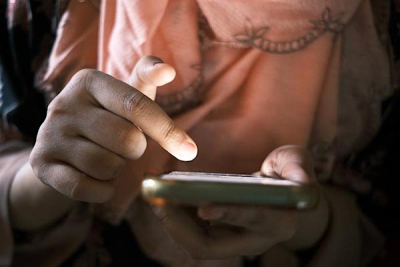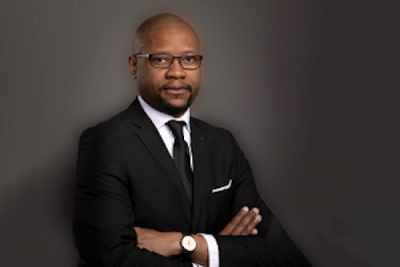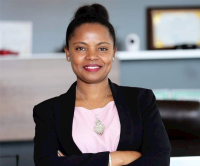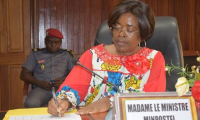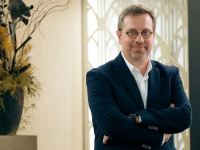African countries are gradually adopting the 5G, presented as the primary tool empowering the next wave of digital transformation thanks to its speed. To boost its effective use, public and private actors are moving to help African innovators develop 5G-powered apps and solutions.
Cameroonian business incubator Boris Bison Youth Empowerment Business Incubator (BB Incubator) currently plans to deploy 5G tech spaces across Africa. In that regard, it recently signed a memorandum of understanding (MoU) with Pan-African video-game publisher Ludique Works and the Finnish technology learning accelerator network Start North. According to a release dated Tuesday (May 24), the tech spaces are baptized “5G Mokki Tech Spaces.”
“Our aim is [to create] a Pan-African tech space network that connects the African continent to Europe and the rest of the world, promoting the learning and adoption of technology, remote work, and entrepreneurship. In addition to promoting education, jobs, and the economic development of the regions, the network also aims to curb climate change by utilizing the latest technology,” explained Boris Ngala (photo, right), founder and CEO of BB Incubator.
Africa’s first 5G network was deployed in 2020. Up to now, less than ten countries have effectively launched the fifth-generation network technology on the continent. Meanwhile, network technology is presented as the primary tool that will empower the next wave of digital transformation by supporting virtual reality, augmented reality, artificial intelligence, and autonomous things. So, private actors are moving to allow the African youth to test the network while developing tech solutions.
“The 5G Mokki Tech Space network can serve international and local companies, provide creative-economy and technology-based jobs, and promote entrepreneurship based on the learning of the latest technology and hands-on projects that serve local conditions. Furthermore, this is supported by an extensive national and international collaboration with universities and companies,” said Douglas Ogeto, Ludique Works co-founder and CEO.
Developed by Start North, the “5G Mokki Tech Spaces” concept was created during an academic program organized in partnership with Finnish University Aalto to develop real-life 5G apps. According to the May 24 release distributed on behalf of Start North, Aalto is currently “in talks” with the University of Addis Ababa (Ethiopiaà and the African School of Economics (which has campuses in Nigeria, Côte d’Ivoire, and Benin) to deploy the “5G Mokki Tech Spaces”. “A project is underway to set up a 5G Mokki in a rural area in Zambia [...] to provide immersive learning and research in the field of agriculture,” we learn.
Ruben Tchounyabe
Instead of pursuing a conventional career after her Ph.D. in Human genetics, she chose the entrepreneurship world. Nowadays the startup she co-founded helps millions of domestic workers earn better income.
Aisha Pandor (photo) is a South African scientist and entrepreneur. In 2014, she co-founded (with her husband Alen Ribic) Sweepsouth, a startup connecting domestic workers with potential employers.
Currently, the startup is available through a web and mobile app. It claims about 1.2 million domestic workers and some 10,000 monthly users (employers) in Cape Town, Durban, and Johannesburg. Sweepsouth was created to help busy people find quick and trustworthy domestic workers.
“Our nanny was going to be going away on holiday [...] at a very inconvenient time. While trying to replace her, we [Ed.note: Sweepsouth founders] realized that there was a business opportunity here, that actually we could build something that helped busy people like ourselves get a quick replacement for a nanny or domestic worker, but in doing that would also be helping people who work in this industry who are unemployed or underemployed to find work opportunities,” Aisha explained in a videocast.
The co-founder holds a Ph.D. in Human Genetics from the University of Cape Town (in 2011). However, instead of following a normal career path, she preferred the entrepreneurship world. I “figured out that I just was not cut out to be employed…,” she explains. Before her dip into the entrepreneurship world, she spent months as an associate manager at the University of Cape Town and a business analyst for consulting firm Accenture.
The scientist turned entrepreneur has received numerous awards and recognitions for her contribution to the improvement of domestic workers’ revenue. In 2014, she won the SiMODiSA Start-up SA Pitching Competition award. Months later, in 2015, she was selected for the 500 Global accelerator program in Silicon Valley. She also received the Best Female Tech/E-Commerce Entrepreneur and Best Black Tech/E-Commerce Entrepreneur at the 2016 PriceCheck Tech & E-Commerce Awards. The following year, she received the World Economic Forum's Africa’s breakthrough female innovators' award. In 2018, her startup also won the best small business category at Savca Industry Awards.
After some eight years in the South African market, Aisha Pandor wants to expand in international markets, Kenya notably. “We are looking at other countries on the continent where people experience the same sort of issues we did when we first came up with the idea for SweepSouth. The sky’s the limit,” she indicates.
Melchior Koba
Leveraging her professional experience, she created a secured and efficient platform that offers millions of Africans the possibility to invest in fractional shares and slivers of cryptocurrencies as well as get sound financial education.
Nelly Chatue-Diop (photo) is a Cameroonian tech entrepreneur specializing in the fintech sector. In 2020, she co-founded Ejara, a blockchain-powered mobile investment platform allowing users to buy slivers of high-priced cryptocurrencies and fractional shares. Thanks to the platform, users have access to financial education and can also save (starting from US$0.16 per deposit) through mobile money.
I created Ejara “to allow everyone to create, protect and increase their wealth and savings wherever they are in Africa,” Chatue-Diop explains. As a seasoned entrepreneur, she has much professional and entrepreneurship experience in the tech world. With an MSc in electronics, computer science, and telecommunications, she started her professional career, in 2004, as a software engineer for Accenture. In 2007 and 2008, she got an MBA in Corporate Finance from HEC Paris and an MBA in Finance from the London Business School. Concurrently, she made a brief stint as a summer associate at Credit Suisse before joining Revenue Management Solutions (RMS), a multinational offering data-driven solutions to help restaurants improve decision-making.
From 2011 to 2015, she climbed up the corporate ladder of grocery store chain Franprix before joining Darty as a pricing director. While still with Franprix, she co-founded Booper, a company offering price optimization solutions. In 2018, months after leaving Darty, she also co-founded Nzinghaa Lab, specializing in Artificial intelligence and blockchain. At the same time, she was still the chief data officer of Betclic Group, which she left in 2020. The same year when she left Betclic Group, she was appointed chairperson of the board of Giotto.ai, a “one-stop AI Cloud platform encompassing cutting-edge integrative tools and powerful libraries.” In 2021, she co-founded Sewelo Africa Digital Training, an online learning platform.
Nelly’s professional career earned her several awards. In 2013, she won the award of the most-committed woman in the French retail industry. She was named one of the Top 10 Chief Data Professionals in Europe and in 2020, she made it to CDO Magazine's Global Data Power Women list and the Global Top 100 Data Visionaries.
Melchior Koba
With years of combined professional and entrepreneurship experience in Africa’s fintech sector, Dare is committed to facilitating cross-border transactions.
Beninese fintech entrepreneur Dare Okoudjou (photo) is the founder and CEO of MFS Africa, Africa’s largest digital payment gateway. Through his startup, he interconnects close to 320 million mobile money wallets offering service providers the opportunity to reach more people with their products targeting unbanked and underbanked populations.
Dare founded MFS Africa in 2009 to help Africans make payments worldwide. The startup’s main goal is to make transactions as easy as ABC. Its mission is to develop solutions so that the only thing needed for payment anywhere in the world will be a mobile money wallet.
With an MSc in Telecom Engineering from Telecom Paris (in 1999), MFS Africa’s founder started his professional career as a telecom consultant for PricewaterhouseCoopers (PwC) in 1999. Some years later, he joined MTN Group first as a Senior Manager before his promotion to the position of Head of Mobile Money international development. In 2017, his startup was recognized by the U.S business magazine as one of the ten most innovative companies in the world. In 2020, the global community of impact entrepreneurs Endeavour selected him as one of the most impactful entrepreneurs in the world. The following year, he took part in MIT’s Foundry Fellowship along with 12 African innovators.
A few days ago, Dare Okoudjou made it to the list of Rof World’s 100 global tech changemakers. His ambition is to make borders meaningless in payment transactions. For that purpose, last year, he secured US$100 million during a Series C debt and equity financing round co-led by AfricInvest FIVE and several investors.
Melchior Koba
In the aftermath of the Covid-19 crisis, the competition got tougher in the African mobile financial service market. The competition was led by both conventional and unconventional service providers, which are aggressively introducing ever-diversified offers. The market is now witnessing an all-out battle for opportunities.
In the past ten years, the mobile money sector greatly expanded in Africa. In 2012, less than 80 mobile financial services were present on the continent. This number rose to 173 with 621 million registered accounts and US$36.7 billion worth of transactions in 2021. The volume of transactions recorded that year was up by 23% compared with 2020 figures.
In 2021, the volume of mobile money transactions rose by 39%, year-on-year, to US$701.4 billion. The rapid expansion of the market is attracting and supporting the emergence of new players, like fintech startups. Over the past five years, the number of fintech start-ups active on the continent rose significantly, and so did the transactions they processed and the financing they raised. Some of them have been able to affirm their positioning in their home countries and even launch international expansion plans. They have now become competitors to mobile money operators but, the battle between those two economic models will surely be long since both of them have their strengths and weaknesses.
Investment volume
Since the launch of the mobile money in Africa in 2007, telecom operators have invested millions of dollars to upgrade the mobile network necessary for the transactions. They also invested in the deployment of agent networks and the development of efficient and secure software, databases, and systems to guarantee smooth transactions.
Fintech startups have also made substantial investments but the volume is far less than that made by mobile money operators. Like mobile money operators, fintech startups also invested in the development of IT systems and agent networks to support their businesses. However, they do not have mobile networks to maintain regularly. So, they have less investment requirements. Nonetheless, they need to invest heavily in high connectivity to be able to track financial transactions in real-time.
The offers
Fintech startups are succeeding because they target underserved individuals and new markets like the micro-credit segment. For Said Bourjij, an expert in finance and development (French-speaking Africa and the Mediterranean basin) and Managing Director of Epargne Sans Frontière, fintech leverages digital tools to respond to users’ needs. Their offers are dynamic but don’t cover the whole financial sector, he adds.
Over-time Mobile money has also evolved and can offer all the services offered by fintech startups. Mobile money operators like Safaricom’s M-Pesa, Orange Money, and MTN Mobile Money are already doing so in some countries. Apart from simple transactions, they added a spectrum of services like merchant and invoice payment, international transfers, micro-savings, microloans, etc. Their platforms are also dynamic.
Thanks to the dynamic of its offers and its platform, M-Pesa became Safaricom Kenya’s main growth driver in 2021 by generating 38.3% of the operators’ annual turnover (US$2.5 billion).
Accessibility
According to the GSM Association (GSMA), mobile Internet penetration was 28% in sub-Saharan Africa in 2020, and mobile penetration was 46%. In its report "The Mobile Economy Sub-Saharan Africa 2021", the Association explains that of the 1084 million people in the region, 303 million (28%) were connected, 206 million (19%) were not covered by a mobile network and 575 million (53%) were living in areas covered by mobile broadband networks but were not yet using mobile Internet services.
The GSMA added that smartphones accounted for less than 50% of the number of mobile connections while feature phones accounted for 45% of all the mobile connections during the period.
At the time, urban populations were more likely to use mobile internet than those in rural areas. So, fintech startups whose services were accessible mainly via the internet could only meet the needs of urban populations. On the other hand, mobile money operators are accessible to both urban and rural populations. So, they have an edge over fintech startups here.
“Mobile money is an enabler of many other services that can help solve critical socio-economic and environmental challenges, such as providing access to essential utilities, sustaining the livelihoods of smallholder farmers, and delivering rapid financial relief to vulnerable populations,” the GSMA explains.
Fees
Mobile money operators and fintech startups are almost offering the same services but they are not targeting the same niches. Some startups target the rural population and use affordable pricing as their main selling point in urban areas.
Mobile money operators criticize the pricing strategy adopted by fintech startups but, in the end, it contributes to lowering fees paid by users. In countries like Senegal and Côte d'Ivoire, the pricing strategy adopted by fintech startups led mobile money operators to reduce fees on their mobile money services.
In 2020, the GSMA was warning about the aggressive pricing strategy widely adopted by fintech startups. It then asked mobile money operators to diversify their income streams to avoid relying solely on fees paid by users. Indeed, in June 2020, providers that took part in the Global Mobile Money Adoption Survey reported that about 87% were generated by users’ fees.
The GSM Association pointed out that mobile money operators’ heavy reliance on transaction fees could expose them to short-term shocks.
“In addition to insulating mobile money providers from short-term demand shock, diversifying to high-value segments may also benefit users, as services can be offered at more competitive rates,” the association argued.
Regulatory framework
In some markets, the regulatory framework forced telecom operators to create a separate entity that will manage their mobile money activities. The new entities are subjected to strict legal frameworks set by the central banks of the regions or countries where they operate.
Depending on the type of services offered, there are legal requirements clearly defining the scope of their operations. Fintech startups that wish to offer similar services like the one offered by mobile money operators are subjected to the same regulation. In the West African Economic and Monetary Union (WAEMU), the central bank BCEAO strictly applies the regulation.
The requirement to create a separate entity for mobile money operations may prove an advantage for telecom operators, who could thus be freed from the requirements to maintain telecom networks and just concentrate on innovating and creating added value.
Even though there could be competition between mobile money operators and fintech startups, the GSMA praises their combined impacts on financial inclusion in Africa. It also encourages them to be more committed to users, whose choices will ultimately determine whether they are profitable or not.
Muriel Edjo
The serial entrepreneur has over ten years of professional experience in IT consulting and business development. Thanks to Dreamcash, he will be among the founders to be celebrated during the first edition of the AfricaTech Awards
Cyril Owona (photo) is a Cameroonian entrepreneur, co-founder, and CEO of Dreamcash, a fintech startup developing innovative and mobile solutions to help users manage their finances.
Based in Yaoundé, Cameroon, the fintech startup was founded in 2020, with Fabrice Atangana as its co-founder. It created MiQo, a neobank allowing unbanked individuals access to all the conventional banking services, including microloans. The startup is among the 45 finalists to be celebrated at the AfricaTech Awards, which will be held on the sidelines of the VivaTech summit (June 15-18, 2022) in Paris, France.
The selection “greatly motivates a young team that has, for years now, dedicated itself to developing tech solutions to effectively boost financial inclusion in emerging markets despite the hard work and sacrifice endured,” Cyril Owona wrote on his Linkedin page.
The latter’s entrepreneurship career began in 2016, in Canada, when he created Innova Services-Conseil International Inc (ISCI), a consulting firm specializing in IT business development and marketing consulting. The following year, he founded CPAI Inc to boost digital transformation in Africa. He is, since February 2021, the CEO of Sewelo Africa Digital Training, an online learning platform.
Before going into the entrepreneurial world, Cyril acquired extensive professional experience. He started in 2006, as a project manager for Alpha Fund before his promotion to an Alpha Fund branch Manager. In 2009, he joined consulting firm ANEO as an IT recruiter. After brief stints in Logica and Umanis, he became the director of IT consultant Odesia.
Melchior Koba
The digital solution is the result of one of Hybrid Designs' co-founders’ personal experience. Created to address security and affordability problems, it already claims over 100,000 users.
Samrawit Fikru (photo) is an Ethiopian software developer, co-founder, and CEO of Hybrid Designs, a software development firm. In December 2014, her startup (founded in 2011) launched Ride, a ride-hailing solution.
RIDE was created to address several problems including security and affordability. “I used to constantly find myself at the office late at night and challenged by transport hurdles while heading to my home. [...] I used to feel unsafe while taking a taxi…the driver also asks you to pay more than two times the price they charge in a day,” Samrawit recounted in 2019.
The co-founder graduated from MicroLink Information Technology College in 2004 with a diploma in software engineering and started her professional career in 2005 as a software engineer at Revots PLC. In 2006, while working at Revots, she graduated with a BSc in Computer Science from the HiLCoE School of Computer Science and Technology.
In 2007, she joined CNET Software Technology PLC as a programmer, and, the following year, she was recruited as a software developer by Cybersoft software Company. Two years later, she flew to Cameroon where she worked at 4Afri Mobile Technology Company as a senior application engineer. In 2011, she returned to Ethiopia and joined DH MicroHard Solutions as a product line manager.
Since 2013, Samrawit Fikru is a member of the African Women’s Entrepreneurship Program (AWEP), a program providing technical support to its members. Last week, the Ethiopian entrepreneur earned international recognition as one of the Rest of World (RoW)'s 100 Global Tech Changemakers. The recognition celebrates her journey and achievement in the tech world.
Melchior Koba
In Cameroon, cybercrimes have exploded but those acts are sometimes perpetrated by local parties. Therefore, by joining the convention, authorities want to be able to track cyber criminals wherever they are.
In Cameroon, President Paul Biya signed, Monday (May 23), a decree authorizing the country’s membership in the Budapest Convention on Cybercrime. Drafted by the Council of Europe, the convention was signed in November 2001 and became enforceable on July 1, 2004. It is devoted to the fight against cybercrimes, including child pornography, copyright infringement, and hate speech. It also consecrates international cooperation in the fight against modern internet and information technology threats.
According to Cameroon’s National Agency for Information Technology and Communication (Antic), 3,105 cybercrime complaints, more than 5,000 fake social media accounts, and seven attacks on government websites were recorded in 2021. That year, the agency estimated the financial losses caused by intrusion into public and private administrations’ computer systems at XAF12.2 billion ( about US$20 million).
The membership authorization comes after the national assembly’s approval last April 27. For Minette Libom Li Likeng (photo), Minister of Posts and Telecommunications, Cameroon’s membership in the Budapest Convention will allow the country to better protect its cyberspace, with the alignment of the December 12, 2010 cybercrime prevention law. It will also contribute to the implementation of a more repressive legal framework and help law enforcement officers identify and punish cybercrimes.
Currently, in Africa, countries are taking action to protect themselves against cybercrimes and protect personal data. Many international summits have been held in that regard since January 2022. The continued mobilization of both private and public actors demonstrates the importance of the issue, particularly in a context marked by accelerated digital transformation on the continent.
Ruben Tchounyabe
He is appointed just one year after assuming the position of general secretary of the same agency he will oversee. In his new position, he will have to address several challenges to make the domestic ICT market more attractive to investors and boost digital adoption.
Inoussa Traore (photo) is, since May 18, the new executive director of Burkina Faso’s Agency for the Promotion of Information and Communication Technologies (ANPTIC). A research professor in economics, innovation, and ICT, he is the fifth executive director to preside over ANPTIC's destinies since its creation in 2014.
In May 2021, when he was appointed ANPTIC executive secretary, Inoussa Traore commented that there were significant challenges facing Burkina Faso’s digital transformation plans. He also hoped the ICT promotion agency would be up to par with expectations. Now that he is at the helm, he will have the chance to make his wish come true.
The new executive director has a doctorate in economic science obtained from Thomas Sankara University (formerly Ouaga II University), in 2019. He began his professional career in 2008 with Yam Pukri Association, an association specialized in training and consulting in the ICT sector. In 2012, he was appointed the head of the International Institute for Water and Environmental Engineering (2iE) program aimed at building the capacities of rural electrification actors and operators in West Africa. Five years later, he joined the Moving Energy Initiative (MEI 2), as a project coordinator, to improve access to electricity services and products in Burkina Faso’s Sahel region and refugee camps.
Since 2014, he is a professor and researcher at Joseph Ki-Zerbo University. He is also a member of the coordination team of the university’s incubator (Incubuo). He is notably in charge of entrepreneurship and management support issues.
In 2020, Mr. Inoussa initiated the FabLab university project selected among the 92 projects that were to benefit from the €1 million Fund set up by the Francophone University Agency to support member universities amid the coronavirus pandemic.
Melchior Koba
With 27 years of professional experience in Orange S.A., Jérôme Hénique will replace the current CEO appointed in 2018. As the new CEO, he will carry out strategic projects in the markets he oversees.
Jérôme Hénique (photo) will officially become the new CEO of Orange Middle East and Africa (OMEA) next July 1. His appointment was announced Tuesday (May 24) in a release published on Orange S.A.’s website. The incoming CEO will replace Alioune Ndiaye who will remain OMEA’s non-executive chairman.
Currently, the incoming CEO is OMEA’s chief operating officer and deputy CEO. As the CEO, he will carry on with actions aimed at developing the group’s subsidiaries in OMEA (one in Jordan and seventeen in Africa) that grew by 9% and generated a €6,381 million turnover in 2021.
Jérôme Hénique joined Orange S.A. (then known as France Telecom) as a consultant in 1994. Up to early 2009, he was consecutively senior consultant for Expertel Consulting, chief Marketing Officer for Wanadoo Europe, Strategic Marketing Director, and Vice President of Consumer Marketing for France Telecom. In 2009, he was promoted to the position of France Telecom’s Senior Vice President of Marketing.
From 2010 to 2015, the senior executive was Deputy CEO of Orange subsidiary in Senegal (SONATEL). Then, from 2015 to 2018, he was CEO of Jordan Telecom Group (Orange subsidiary in Jordan) before his promotion to COO and deputy CEO for Orange MEA.
His appointment is in line with Orange Group CEO Christel Heydemann’s ambition to accelerate digital transformation and growth in some key markets and become a multiservice operator. The group has lofty ambitions for most of its markets. It notably wants to boost broadband internet offers and develop the mobile money market. In the Middle East and Africa region, it is active in segments like health, education, banking, and cybersecurity.
Muriel Edjo
More...
Egypt is one of the countries with the fastest-rising used-car market. Despite the presence of notable competitors, Sylndr wants to conquer the market and become the most-trusted retailer.
Egyptian startup Sylndr recently raised US$12.6 million from a group of investors led by Saudi VC firm Algebra Ventures. On Monday (May 23), the fundraising was announced by Omar El Defrawy, Sylndr co-founder and CEO.
With the funds secured, the startup specialized in used car retailing wants to scale operational capacity, develop its tech infrastructure, and build its retail segment. It also plans to double its workforce by the end of 2022 and update its tech to allow users to list their cars for sale. Sylndr plans to double the size of its team by the end of the year and open up to buyers in late 2022 or Q1 2023.
For Omar El Defrawy, Sylndr’s ambition is to quickly become the most trusted used car retailer in the Middle East, Egypt particularly. “The main problem that we’re trying to fix in Egypt is the complete mistrust between buyers and sellers of used cars in the markets.[…] imagine if you enable financing and make the cars much more affordable to people, that’s a core value proposition we want to ship as well,” El Defrawy told Techcrunch.
According to Ken Research, Egypt is, since 2020, one of the countries with the fastest-growing used-car market. The reason for that growth is the high cost of new cars. Popular car models cost around US$15,000, which is quite expensive for many Egyptians in a market where car financing is quite burdensome. In that context, Sylndr wants to capitalize on retail sales, auctions, dealership, B2B sales, financing, insurance, towing services, and other value-added services.
Startups like Cazoo, Cars 24, and Spinny have also seen the potential of the Egyptian market and are developing strategies to conquer it.
Ruben Tchounyabe
The serial entrepreneur launched several successful projects focused on the African market. Throughout his entrepreneurial career, he has garnered several awards.
In 2018, Senegalese-born entrepreneur Oumar Basse (photo) co-founded Yobante Express with Badra Badji. A computer scientist by trade, Basse wants to optimize last-mile delivery in emerging markets.
Yobante Express “democratizes last-mile delivery,” and is more affordable, co-founder Basse says. According to the latter, the startup can deliver products from Dakar to other Senegalese regions for as low as XOF1,200.
From its base in Delaware, USA, his startup operates in Senegal, Ghana, South Africa, and Nigeria. Through its web and mobile platforms, it networks freelance transporters with traders and individuals, creating a trusting environment beneficial to every party. In 2021, it raised US$1.2 million from Grenfell Holdings, Launch Africa Ventures, R-Ventures, Libertad, and a pool of local and international angel investors.
Oumar Basse holds a master's in distributed information systems (DIS) from Cheikh Anta Diop University (2016), Dakar. He started his professional career one year earlier as a sales agent for PCCI Group, a business process outsourcing multinational. In 2017, he co-founded Nano Air, which developed a remote irrigation system (WIDIM POMPE) allowing farmers to manage their crop watering tasks remotely using their cellphones. In 2018, thanks to Nano Air, Oumar Basse won the second special award at the Agri Startup Summit held in France.
Melchior Koba
Healthtech startups are gradually becoming better alternatives to addressing healthcare access challenges in Africa. In Côte d’Ivoire, Zencey is one of those startups conquering the health market with innovative offers.
Zencey is a healthtech startup founded in 2019 by Yaya Mbaoua. The startup allows access to healthcare services for its users, in line with its mission, which is to “transform the African healthcare ecosystem by making access to healthcare more affordable and accessible to everyone.”
Through its eponymous platform, accessible via the web and its android app, users can book consultations with doctors by following two simple steps. First, they will have to log on to the platform by providing a set of personal information and choose the doctor they want to book, depending on the illness affecting them. Then, they will set a date and time for the consultation. Once set, the consultation will be carried out via video call through the Zencey app.
The startup explains that its affiliated doctors and specialists are accredited with years of experience in developing countries. It is constantly on the hunt for doctors and health practitioners to join its platform. For that purpose, it has a form allowing interested parties to enroll and set their availability schedule.
Zencey also offers firms the opportunity to guarantee healthcare for their staff. It sees that offer as an affordable alternative to the ever-expensive health insurance. The offer consists of emergency care anytime needed and virtual healthcare assistants to boost employee commitment.
In 2021, the startup announced its selection for Orange Cote d’Ivoire’s 2020 startup acceleration program. It is also one of the 45 startups selected for the first edition of the AfricaTech Awards, to be held in Paris during the Viva Technology 2022 next June.
Adoni Conrad Quenum
Following the Covid-19 crisis, several countries accelerated their digital transformation projects and notably improved connectivity. They are also focused on improving cybersecurity and protecting personal data since their credibility will depend on their networks’ resistance to attacks and how they protect users’ data from abusive exploitation. Last January, during the cybersecurity summit in Lome, Togo, the UNECA invited African countries to collaborate for enhanced protection of their cyberspace.
In Niger, the national assembly approved Monday (May 23), the ratification of the African Union Convention on Cybersecurity and Personal Data Protection.
Their approval comes months after the government authorized the ratification during its January 13, 2022, ministerial council. This is probably why Niger is, since February 2022, on the African Union’s list of countries that have already ratified the convention.
The national assembly’s approval marks the end of the ratification process and brings to 13 the number of countries that have fully ratified the convention. Only two ratifications are still required for the convention to become effective in Africa.
According to government commissioner Youssouf Mohamed Elmouctar (photo), Niger’s membership in the cybersecurity and personal data protection convention will help the country set its cybersecurity and personal data protection objectives and guidelines. It will also help consolidate the existing framework to align it with the continental goals.
Indeed, the convention is in line with local authorities’ ambition to boost socio-economic development with digitalization. In doing so, they will need to protect personal data and secure their networks.
Following the Covid-19 crisis, several countries accelerated their digital transformation projects and notably improved connectivity. They are also focused on improving cybersecurity and protecting personal data since their credibility will depend on their networks’ resistance to attacks and how they protect users’ data from abusive exploitation. Since January 2022, many international cybersecurity summits have been organized in Africa.
Muriel Edjo



